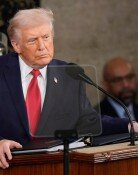Govnt Making Political Issues Out of Pending Economic Problems
Govnt Making Political Issues Out of Pending Economic Problems
Posted June. 08, 2007 04:36,
Under the ruling government, major pending issues such as welfare, employment and real estate have been made into political issues, rather than being dealt with using an economic approach. Following this, it has been pointed out that it raises doubts whether related government policies are following a populist approach.
Ahead of the Korea International Economic Associations 30th anniversary seminar to be held for two days in Daegu starting from June 8, Hallym Universitys President Kim Joong-soo released a report named, The Reality and Ideals of Economic Policies on June 7, which revealed that tasks to improve policies such as the extension of welfare or balanced development need to be undertaken by working together with economic development strategies, but (with the current government) in a state where an overall vision for national development has not been secured, it was all carried out individually.
In regards to the current governments welfare policies, the Hallym president said, Although a goal was set to solve bi-polarization and develop both sides together, this caused an economic problem to be approached in a political context. He added, The goal needs to be aimed at shifting the underprivileged class into the growth industry, but instead, the goal was set to increasing the number of people receiving welfare, and as a result, induced the side effect of increasing dependence on welfare.
He criticized the governments real-estate policy and said, Instead of devising a solution using an understanding of the principles of market operations, policies were made with hopes that the economy would move according to ideological prospects, and that is where the seriousness of the problem lies. In particular, he emphasized that the problem, which was limited to only the Gangnam area in Seoul, was made into a tax issue that affected the whole nation, and they were not able to present a solution that took other macro policies into consideration. Along with this, he also commented on the 3 Nots Policy and said, It is supposedly necessary in order to normalize public education, but corrections are inevitable as the policy is not able to adjust to changing times.
Professor Park Se-il, a professor at the Graduate School of International Studies of Seoul National University who will be another presenter at the seminar, strongly criticized the current governments balanced national development policy. In a report titled, Balanced Regional Development and Global Competitiveness, he wrote, The current governments balanced development theory has no strategy other than the redistribution (of resources) of public institutions by decentralizing on the provincial level. He added, It is a populist approach that is a far cry from mainstream regional development theories.
Professor Park added, In the age of globalization, multinational corporations often decide to invest in competitive large international cities. He pointed out that, If the development of metropolitan areas like Seoul is impeded by various regulations, as the current government is at the moment, the money will not flow to regional areas; rather, it will result in the money being invested abroad. Professor Park added that for fundamental regional development, various regulations on the Seoul metropolitan area must be eased and the central governments power must be decisively and substantially transferred to regional districts.
ddr@donga.com





![[단독]폴란드, 韓 해군 최초 잠수함 ‘장보고함’ 무상 양도 안받기로](https://dimg.donga.com/c/138/175/90/1/wps/NEWS/IMAGE/2026/02/27/133437397.1.jpg)
![[속보]“하메네이 사망” 트럼프 공식 발표…“일주일간 폭격할 것”](https://dimg.donga.com/c/138/175/90/1/wps/NEWS/IMAGE/2026/03/01/133441418.1.jpg)
